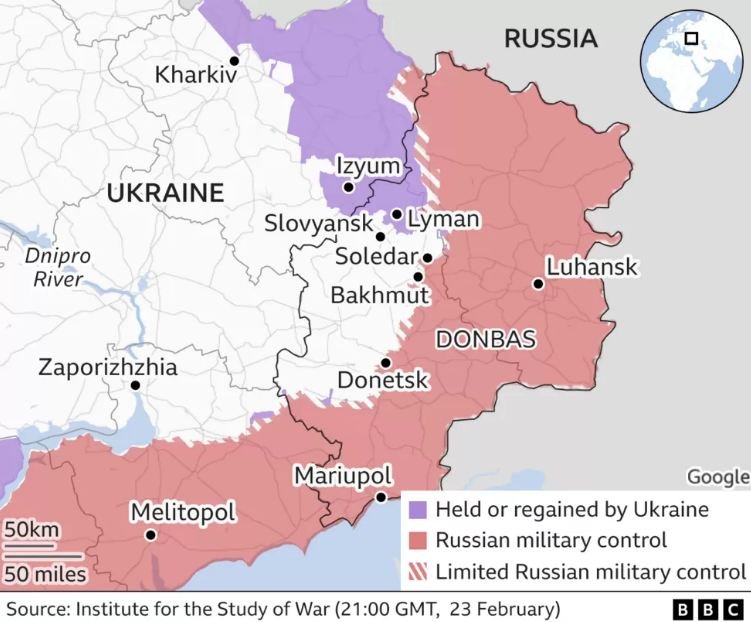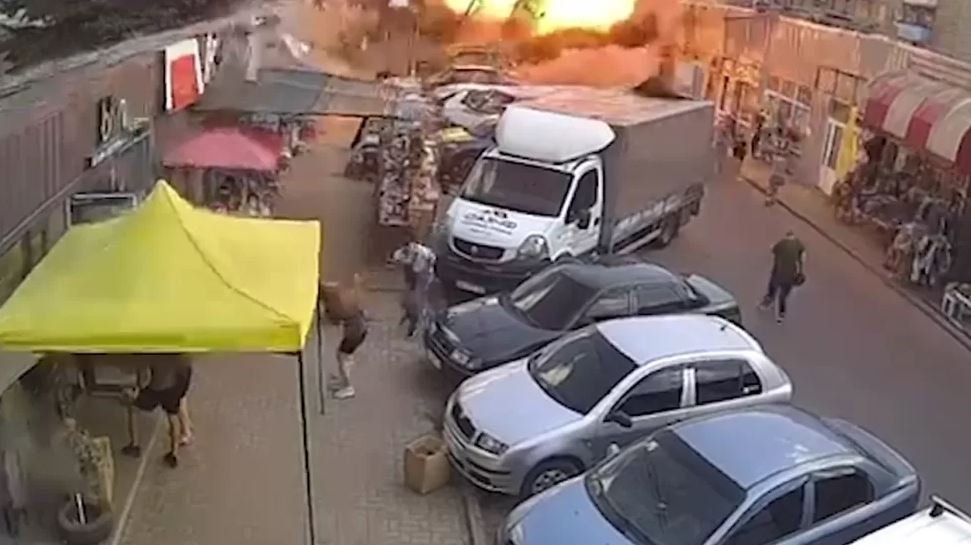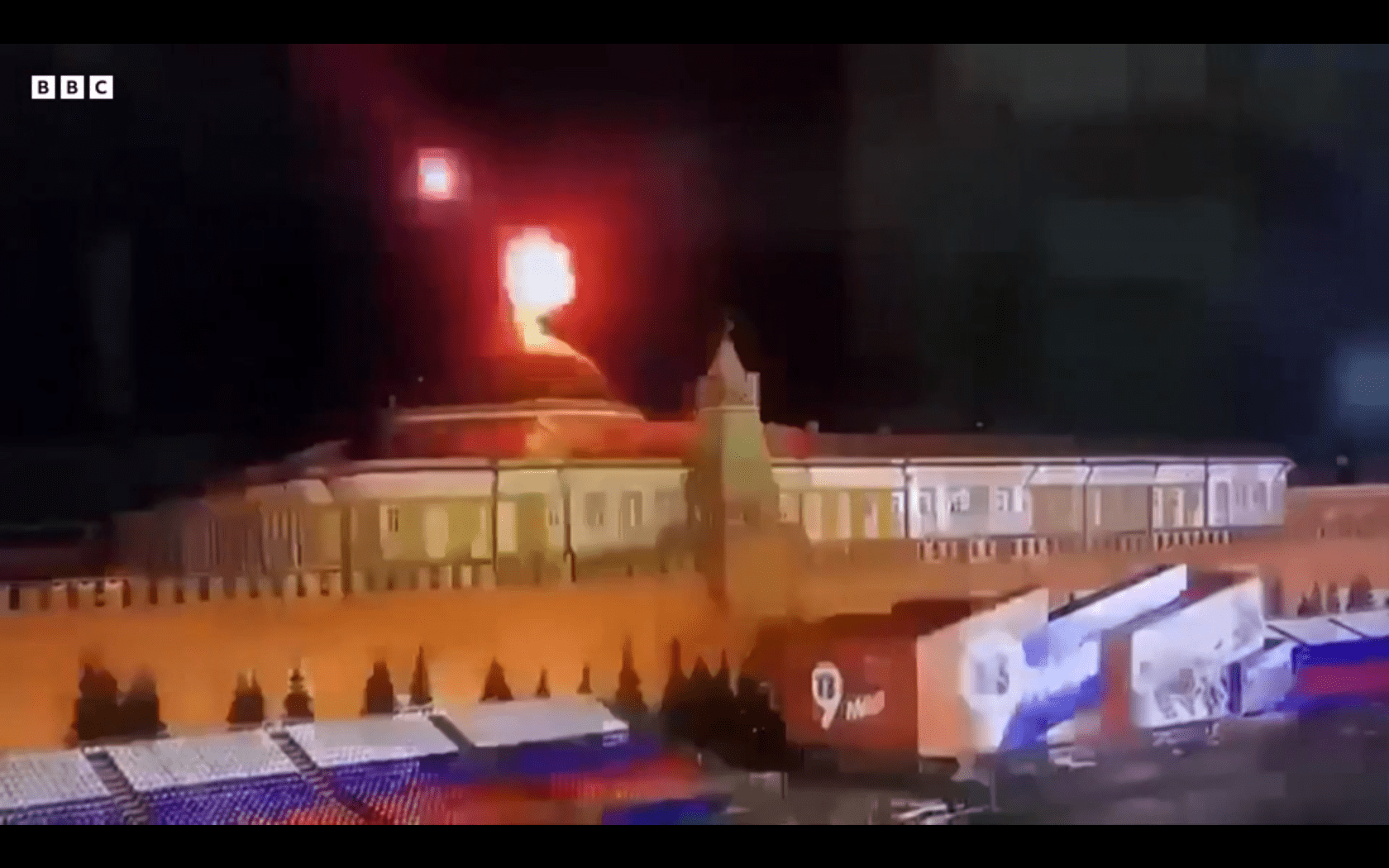
Feb. 28, 2023: The situation in the city of Bakhmut, on the eastern frontline, is becoming "more and more difficult", Ukraine's President Volodymyr Zelensky has said.
Russian forces have been trying to take the city for over six months.
"The enemy is co









